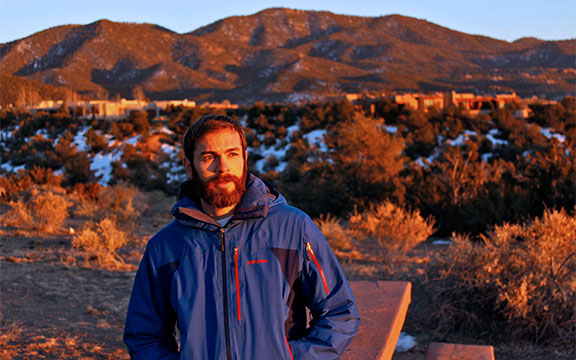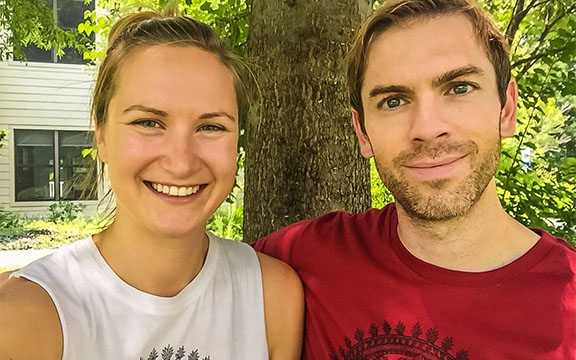 Negativity is insidious. I had been slipping imperceptibly into a ruder kind of communication. I grew tense and snapped at loved ones. I caught myself up in the world’s failings, my own shortcomings and powerlessness to change anything, and the small, daily annoyances of people around me. I broiled with indignation at just about anything—assaults on the environment and civil rights, or the car driving too slowly in front of me. I railed against the blatant greed of certain corporations and streamed ridiculous insults at other drivers, masked as humor.
Negativity is insidious. I had been slipping imperceptibly into a ruder kind of communication. I grew tense and snapped at loved ones. I caught myself up in the world’s failings, my own shortcomings and powerlessness to change anything, and the small, daily annoyances of people around me. I broiled with indignation at just about anything—assaults on the environment and civil rights, or the car driving too slowly in front of me. I railed against the blatant greed of certain corporations and streamed ridiculous insults at other drivers, masked as humor.
Some of it was funny, but it didn’t actually feel good. I was mostly happy and steady, but I’d lost contentment. It didn’t occur to me then that the problem was not rooted in the world I saw but in my own reactions to that world. The problem was in the way I talked. The way I found insipid pleasure in dozens or hundreds of daily complaints, big and small.
For my partner, Anjali, it was tiring. Meanwhile, I didn’t know there was a problem. Complaint was a gradually heated pot of water, and I was the frog about to get boiled. Me, negative? Never! (Insert righteous argument devolving into negativity here.) I was in Bali with Anjali, and after a bad night it hit me, almost forcibly in the gut, where that path would take me. The picture my mind painted was bitter and desolate. I managed, just before the boiling point, to make a pact with myself to be more conscious of how I expressed my thoughts, to be sure they matched my self-image. To be as kind, as loving, as I wanted to feel.
The universe must have heard. Three days later, the Ubud Yoga studio to which we’d bought week-long passes held a satsang on complaint-free living. The talk was based on Will Bowen’s book A Complaint Free World, a revolutionarily simple treatise on making yourself and the people around you better by quashing the habit of complaint. The book and the talk came with a challenge: put a bracelet on one wrist, pay attention to your words, and switch it to the other wrist when you notice that you’ve complained. Ultimately, you’d aim for twenty-one consecutive days without switching the bracelet. That twenty-one days rewires your brain and forms a habit of self-awareness vital to both inner and outer peace.
Complaint is a drug we don’t realize we’re taking. It feels good, until it doesn’t. The word complain means, roughly, to feel together. Whatever we experience, that experience wants affirmation. It wants sharing. When we complain and someone laughs or validates our complaint with common experience, we bask in the dopamine rush of craved human connection. In consequence, our complaint-addled brains reinforce neural pathways to the negative. No one is bettered by it. We stew in the gritty dissatisfaction as always, but now we stew together. Company soothes our anger, self-pity, and misery. We bring each other down when we should lift one another up.
I bought a bracelet and got to work. Because complaint is so ingrained in our cultural dialogue, I had to start by taking Will Rogers’s sage advice: “Never miss a good chance to shut up.” Sometimes it took me hours before I’d reevaluate a comment and admit that it was a complaint. I’d switch the bracelet. I didn’t like acknowledging weakness. I didn’t like wearing the bracelet on my left wrist, where I already wore a watch. (See how easily negativity asserts itself?) But I liked the challenge of choosing my words carefully, analyzing their energy. I read Bowen’s book, questioned what constituted a complaint and what didn’t, and in that philosophizing I came to better understand myself and the energy fueling my words. I thought about my thoughts before I said them.
A full nine months later, I completed the challenge. Twenty-one days without complaining. A few times, I got to fifteen or seventeen before I’d slip up. Annoying, but you carry on and stay vigilant. After twenty-one I kept going until I decided I didn’t need the bracelet anymore. I felt relieved at discarding the nonsense that we humans love distilling into drama. I relapsed from time to time, but I held onto the awareness, found a better harmony, became more fully myself.

Photo: Anjali and Narada in Yogaville.
A week before heading to Yogaville as a Living Yoga Trainee (LYT), I put the bracelet back on. It had been just over a year since I first encountered complaint-free living in Bali. I wondered if I could make a better second run at the challenge. When I found that, through our focus on Raja Yoga, we’d analyze and reshape our thoughts in meditation and discussion, it seemed the Cosmic Consciousness was listening again. I was ready for new growth. The progression felt natural, even obvious. I’d first learned to control my words, and now I’d delve deeper into the underlying thoughts that shaped them.
Three weeks and a day into being a LYT, I’d completed the twenty-one-day challenge. If you’re counting, that’s 29 days (I was staying with my in-laws the first week, much love to them). I couldn’t even wear the bracelet for the final week, given the huge, spreading rash of poison ivy up both arms and legs. Didn’t matter. Complaint was so against my habits that I didn’t manage to get proper treatment until Anjali saw my grim, pained expression and dragged me to the clinic for a shot and a round of steroids. My body hurt, but my spirit was stubbornly optimistic.
Part of me believes Yogaville did that for me. A positive environment and a community nearly dripping, in the August heat, with good vibes might be an unfair advantage. Avoiding complaint was almost too easy. But I’d learned a lot about myself and what my work as a writer entails. About how to care with nonattachment, confront the world’s ills and fight for good while guarding my peace. About resolving the paradox of claiming my joy and tranquility on a sometimes atrocious earth that needs work. I wanted to get back to the bombardment of daily life and test myself. I wondered, What will I be like outside of the Yogaville bubble? How much of what I’ve experienced here can I retain? How much will I forget?
I knew it would be tough. I didn’t know how tough until after a stupefying end to a bitter election. I told myself to let anger, resentment, and fear fall away before any public response on social media, before talking with friends or debating family. Inner peace had to be a conscious choice, and yet it had to be coupled with a clear-eyed confrontation of brutal realities, too, along with the beautiful. The energy we radiate into the world starts with a thought and flows out with a word. Those words, as much as our actions, are our legacy. “A word is a bird,” Swami Satchidananda said. Once you free it, you can’t cage it again.
What I discovered, after leaving Yogaville, was that I wasn’t really leaving. I could take Yogaville back with me. My mind, my words, my actions could be an extension of a place that had already resided within. I recognized it once a while back. At the time, I’d had no name for it aside from the vague and culturally tinged: God. For years I’d kept it in the mind but forgot to hold it in the heart. But I rediscovered that place with the help of the friends I made as a LYT and all they shared. Yogaville is their gift to me, my reminder of the divine in everything, my model complaint-free world. I’ll carry it with me now wherever I stand and relentlessly share it with all who stand beside me. And especially those who don’t.
About the Author:
 Nick Narada Davidson is a writer, musician, and martial artist based in Santa Fe, New Mexico.
Nick Narada Davidson is a writer, musician, and martial artist based in Santa Fe, New Mexico.

